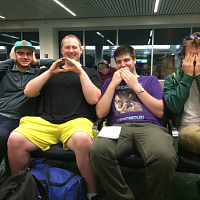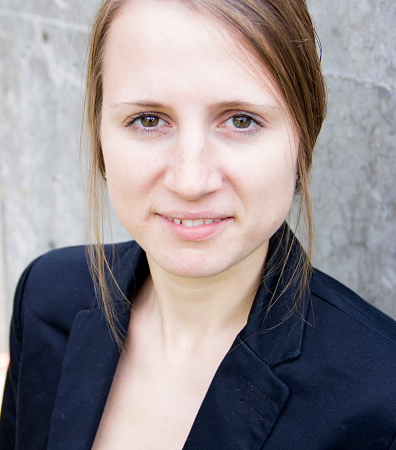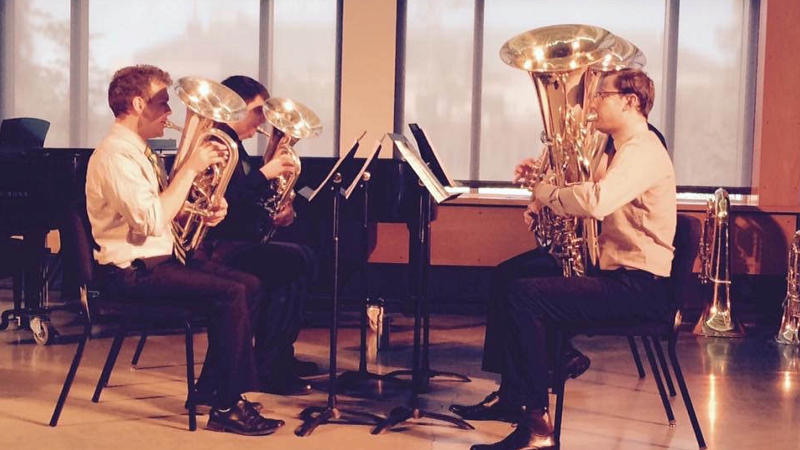EUGENE—In the past month, students at the School of Music and Dance have walked away with some pretty big accolades from experts in their fields of study. Increasingly, music students at the University of Oregon are holding their own among some of the best of their peers both nationally and internationally.
DuckTet, a tuba euphonium quartet at the University of Oregon comprised of Charles Demonnin, Jake Fewx, Tom Janssen, and Stephen Young, won 3rd Prize at the 2016 International Tuba Euphonium Conference (ITEC), which was held University of Tennessee in Knoxville earlier this month. Beating out some top tuba/euphonium powerhouse schools.
“Performing at ITEC was a blast!,” Jake Fewx, said. “We had been working so hard all year that when we actually got to the competition in Tennessee, it felt surreal to me. We stacked up against some really tough competition against groups from big-name music schools. The fact we made it to finals was gratifying enough! We came to have fun and perform great music, and I think we succeeded in that. I'm really glad we could share great music with the tuba/euph world and represent ourselves, Mr. Grose, and the UO on the international stage. It really was an honor!”
“This was an unprecedented achievement for an Oregon group. To finish ahead of 29 other quartets from around the globe is outstanding,” Mike Grose, the associate professor of tuba and euphonium at the SOMD, said. “DuckTet is in elite company; being on the winners’ platform with a group from the United Kingdom and one from New York is outstanding.”

It took countless hours of rehearsing and performing, as well as periods of time devoted to learning how to grow their working relationships as four individuals united toward one common goal – the music.
“I'm so proud of our commitment to the music and to each other,” Stephen Young, said. “We're happy with how we did in the competition, but we're most proud of all the work leading up to it. We grew tremendously close as musicians and friends over the past year; I think for us, the competition was just a chance to showcase that growth and have fun.”
This latest success simply adds to the growing list of awards the School of Music and Dance has gathered in the past few years, and each one adds to the school’s growing reputation as a powerhouse in its own right.
“This experience has given our students an excellent lesson in how committing oneself the art and each other will result in success. I couldn’t be more proud of them for what they have accomplished this year,” Grose said.
While low brass was winning in Tennessee, Future Music Oregon students studying at the Intermedia Music Technology Center in the University of Oregon School of Music received several awards for their various music accomplishments.
________________________
Future Music Oregon is the composition and performance ensemble at the UO. Students us digital sound design software and various coding and motion activation devices to create and perform original compostions, that are as much performance art as classical music.
Fang Wang had her composition for the Kyma sound design station and Leap Motion gaming controller accepted into the Kyma International Sound Symposium; Jinshuo Feng's composition for Gametrak 3-dimensional game control system and Kyma was accepted into the 2016 International Computer Music Conference; and Chi Wang and Olga Oseth both had their works accepted into both 2016 Kyma International Sound Symposium and two compositions accepted into this year's International Computer Music Conference. Oseth's Terminal Project for her master's degree, which she performed at this year’s The Society for Electro-Acoustic Music (SEAMUS), was also selected by conference participants to be on the 26th SEAMUS CD. Electro-Acoustic music is a term used to describe music that is dependent on electronic technology for its creation and performance.

"Having my piece be accepted to the three of the biggest conferences and included on SEAMUS CD is quite an honor for me and an opportunity to work with and learn from some of the most important people in my field of study,” Oseth (photographed left) said.
By sponsoring concerts and lectures about intermedia art and electroacoustic music, Future Music Oregon will continue to cultivate an environment where students feel excited about exploring new forms of musical and new media. Led by Jeffrey Stolet, the Future Music Oregon program offers courses in electronic Composition, Interactive Media Performance, Sensormusik, Musical Performance Networks, Performance with Data-Driven Instruments, Digital Audio and Sound Design, and History of Electro-Acoustic Music.
"Because of Dr. Stolet's teachings, mentorship and most importantly patience I was able to compose this piece successfully. I still have so much to learn from him and so excited to be here at the UO for three more years studying music technology,” Oseth said about her advisor.

